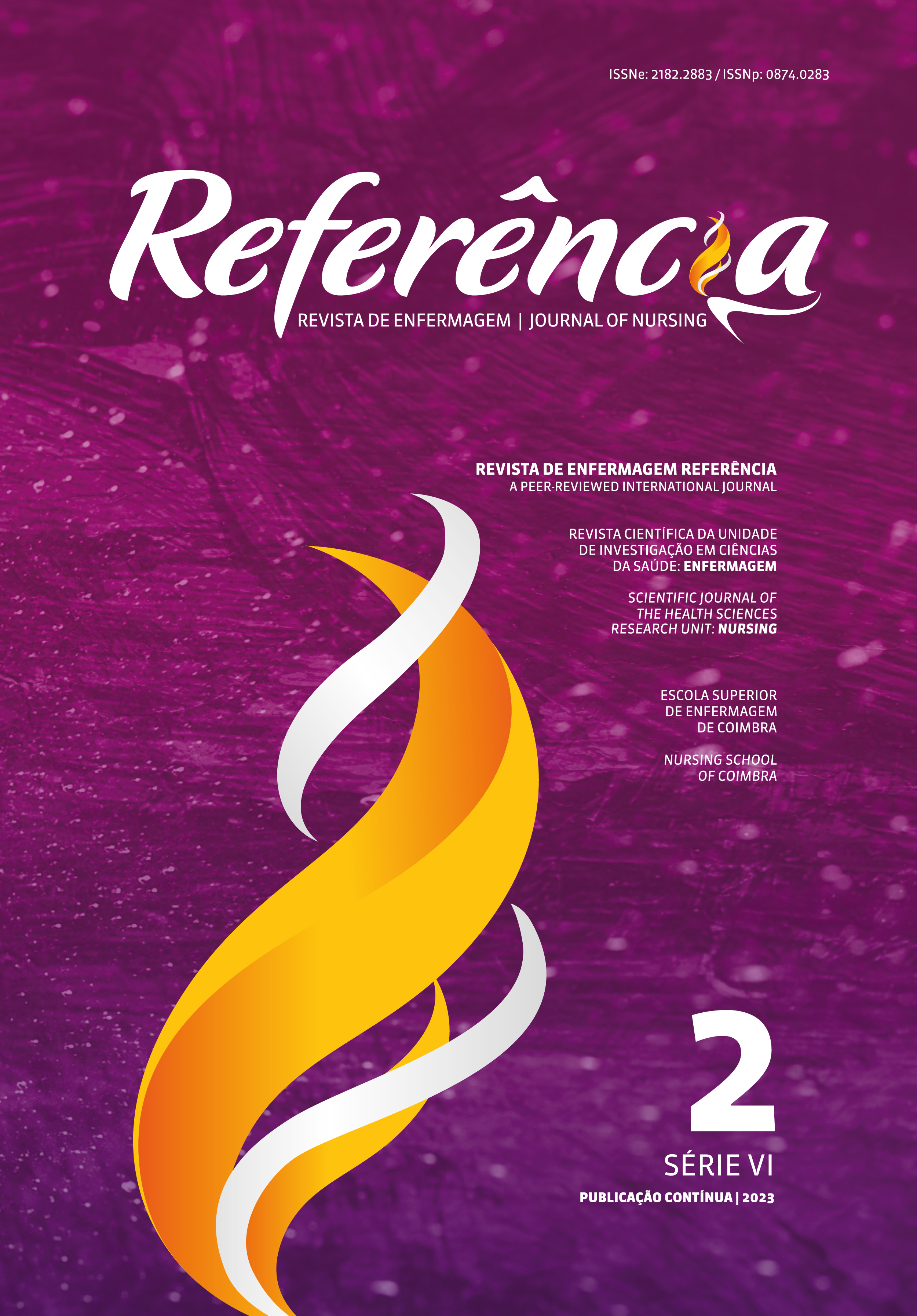Validation of the Personal Life Questionnaire in University Students (PLQ Universitários
DOI:
https://doi.org/10.12707/RVI23.44.30625Keywords:
Healthy Lifestyle, health promotion, validation study, studentsAbstract
Background: University students experience several situations that can change their lifestyles. The search for a suitable research tool to analyze the lifestyle of this population is justified by the importance of this phase.
Objective: To describe the validation process of the Questionário de Estilos de Vida Pessoal em Estudantes Universitários (PLQ-Universitários) in Brazilian university students.
Methodology: This study was conducted with 286 Brazilian university students. Reliability wasanalyzed using Pearson’s correlation coefficient and intraclass correlation coefficient (ICC). Internal consistency was analyzed through Cronbach’s alpha of the total scale and test-retest stability using the ICC.
Results: Cronbach’s alpha for internal consistency was 0.686 for men and 0.647 for women.
Conclusion: This tool can be used to identify behaviors related to the lifestyle of Brazilian university students.
Downloads
References
Añez, C. R., Reis, R. S., & Petroski, E. L. (2008). Versão brasileira do questionário “estilo de vida fantástico”: Tradução e validação para adultos jovens. Arquivos Bras ileiros de Cardiologia, 91(2), 102-109. https://doi.org/10.1590/S0066-782X2008001400006
Brown, N., Muhlenkamp, A., Fox, L., & Osborn M. (1983). The relationship among health beliefs, health values, and health promotion activity. Western Journal of Nursing Research, 5(2), 155–163. https://doi.org/10.1177/0193945983005002
Buss, P. M., & Pellegrini Filho, A. (2007). A saúde e seus determinantes sociais. Physis, 17(1), 77–93. https://doi.org/10.1590/S0103-73312007000100006
Chaparro, J. G., Magalhães, F. C., Brochier, L. S., Mattioni, F. C., Mata, J. A., Toassi, R. F., Rocha, C. M., & Domingues, H. S. (2023). Tradução e adaptação do Personal Lifestyle Questionnaire (PLQ) em população universitária no Brasil. Revista Transmutare, 8, e16296. https://doi.org/10.3895/rtr.v8n0.16296
Cockerham, W. C. (2005). Health lifestyle theory and the convergence of agency and structure. Journal Health and Social Behavior, 46(1), 51–67. https://doi.org/10.1177/002214650504600105
Dahlgren, G., & Whitehead, M. (1991). Policies and strategies to promote social equity in health. Institute for Future Studies.
Domingues, H. S., Osuna, A. F., Vega-Martínez, M. C., Moral, P. A., & Casado, P. R. (2022). Adaptación y validación del cuestionario Estilo de Vida Personal en población joven española. Revista de Investigación Apuntes Universitários, 12(1). https://doi.org/10.17162/au.v11i5.931
Fleck, M. P., Louzada, S., Xavier, M., Chachamovich, E., Vieira, G., Santos, L., & Pinzon, V. (2000). Aplicação da versão em português do instrumento abreviado de avaliação da qualidade de vida “WHOQOL-bref ”. Revista Saúde Pública, 34(2), 178–183. https://doi.org/10.1590/S0034-89102000000200012
Fleiss, J. L. (1999). The design and analysis of clinical experiments: Fleiss/the design. John Wiley & Sons. http://doi.wiley.com/10.1002/9781118032923
Luna-Bertos, E., & Sanchez-Ojeda, M. A. (2015). Hábitos de vida saludable en la población universitaria. Nutrición Hospitalaria, 31(5), 1910–1919. https://dx.doi.org/10.3305/nh.2015.31.5.8608
Hernán, M., Fernández, A., & Ramos, M. (2004). La salud de los jóvenes. Gaceta Sanitária, 18(4), 47-55. https://scielo.isciii.es/scielo.php?script=sci_arttext&pid=S0213-91112004000400010
Hill, M. M., & Hill, A. (2008). Investigação por questionário. Sílabo.
Mahon, N. E., Yarcheski, A., & Yarcheski, T. J. (2002). Psychometric evaluation of the personal lifestyle questionnaire for adolescents. Research in Nursing Health, 25(1), 68–75. https://doi.org/10.1002/
Mahon, N. E., Yarcheski, T. J., & Yarcheski, A. (2003). The revised personal lifestyle questionnaire for early adolescents. Western Journal of Nursing Research, 25(5), 533–547. https://doi.org/10.1177/0193945903253000
Maroco, J., & Garcia-Marques, T. (2013). Qual a fiabilidade do alfa de Cronbach? Questões antigas e soluções modernas? Laboratório de Psicologia, 4(1), 65–90. https://doi.org/10.14417/lp.763
Ministério da Saúde. (2013). Glossário temático: Promoção da saúde. https://bvsms.saude.gov.br/bvs/publicacoes/glossario_tematico_promocao_saude.pdf
Ministério da Educação. (2020). Instituto nacional de estudos e pesquisas educacionais Anísio Teixeira (INEP): Censo da educação superior 2019. https://www.gov.br/inep/pt-br
Moral, P. A., Gascón, M. L., & Abad, M. L. (2014). La salud y sus determinantes sociales: Desigualdades y exclusión en la sociedad del siglo XXI. Revista Internacional de Sociologia, 72(1), 45–70. https://doi.org/10.3989/ris.2013.02.16
Pôrto, E. F., Kümpel, C., Castro, A. A., Oliveira, I. M., & Alfieri, F. M. (2015). How life style has been evaluated: A systematic review. Acta Fisiátrica, 22(4). https://doi.org.10.5935/0104-7795.20150038
Silva, A. M., Brito, I. D., & Amado, J. M. (2014). Tradução, adaptação e validação do questionário Fantastic Lifestyle Assessment em estudantes do ensino superior. Ciência Saúde Coletiva, 19(6), 1901-1909. https://doi.org/10.1590/1413-81232014196.04822013
Vinuto, J. (2014). A amostragem em bola de neve na pesquisa qualitativa: Um debate em aberto. Tematicas, 22(44), 203–220. https://doi.org/10.20396/tematicas.v22i44.10977






















